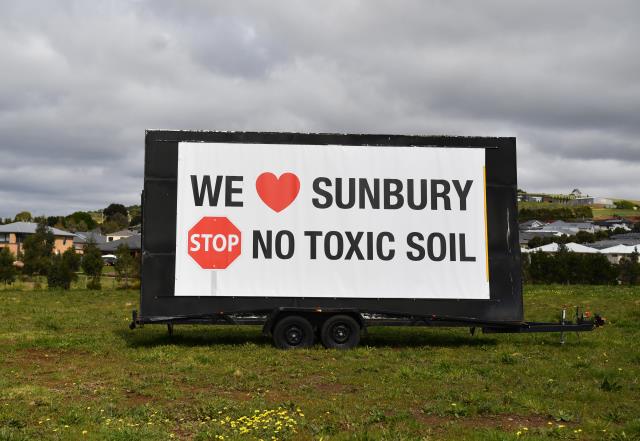Elsie Lange
The Victorian Ombudsman has condemned the state’s environmental regulator over the handling of the dumping of West Gate Tunnel Project (WGTP) spoil into the western suburbs, including the Hi-Quality site at Bulla.
The report, tabled by Ombudsman Deborah Glass in parliament on Tuesday morning says the Environmental Protection Authority (EPA) failed to properly engage with community groups over the soil disposal, and lacked accountability which in turn increased local concern.
It also found the EPA had approved earlier versions of Environment Management Plans (EMPs) with “deficient information” due to government pressure “to ‘fix’ problems”, as well as overlooking the human rights of locals.
However, the report said the EPA’s decision to approve EMPs for spoil disposal was “environmentally sound” and didn’t place local communities at significant risk.
Sunbury resident and founder of the Sunbury Against Toxic Soil Facebook page Chris O’Neill said the EPA had put “unreasonable psychological stress” on the community.
“The EPA, as with all departments in this process, cut out the community aspects, and the community aspect, in a large project, is the most important aspect,” Mr O’Neill said.
“Everything that the EPA has done is now overshadowed by their failure and incompetence to do the basics of their role.”
Ms Glass launched the investigation in August 2021 following concerns from communities near three sites in Bulla, Baccus Marsh and Ravenhall approved by the EPA for the dumping of spoil from the WGTP, after the discovery of PFAS chemicals in the project’s groundwater.
“This failure to provide appropriate information and opportunities for communities to participate when making its approval decisions for sites to receive the spoil for the Project was unreasonable,” Ms Glass said.
“It also gave no specific consideration to human rights, even though human rights were very much a focus for affected communities, who were worried about the impact of PFAS on themselves and their children, as well as waterways and wildlife.”
The Ombudsman made four recommendations in its report, including a review in the approach to community engagement, consideration of improvements to the EPA’s Charter of Consultation, the implementation of a human rights assessment procedure and for the EPA to seek consent to publish the redacted EMPs and related reports.
The EPA said in a statement it accepts the Ombudsman’s recommendations in full, and acknowledged their “shortcomings” in community consultation and engagement.
“While our decisions will always be based on science and the law, we have made significant improvements to how we engage with local communities about issues that affect them. This has been acknowledged by the Ombudsman in her report,” the EPA said.
Hume council welcomed the Ombudsman’s report, following the dismissal of its Supreme Court legal challenge against Planning Minister Richard Wynne over the storage of spoil at Bulla in May.
“Council agrees that the EPA’s communication of decisions fell short of reasonable community expectations,” Hume council chief executive Sheena Frost said.
“We welcome the finding that the EPA could have engaged more effectively with the affected communities and that the failure to do so caused social, psychological and financial stress to this community.
“Council thanks those community members who contributed to this investigation,” she said.







